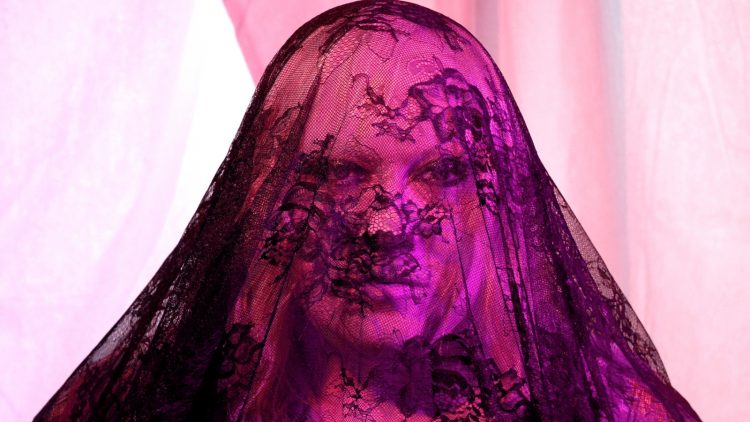Each monitor on My Again Was a Bridge for You to Cross seems like a Greek statue frozen in some tragic visage of horror. Anohni’s voice sounds delicate, offended, and exhausted, as she grieves monitor by monitor — for the unfulfilled guarantees of civil rights, for buddies misplaced to medication and melancholy, for the immolation of a world succumbing to ecocide. On one track, “Why Am I Alive Now?” her voice quivers and keens as she regards the discord closing in on her (leaves fall off timber, smoke chokes the air, her tears movement to the ocean, and “all our recollections are sinking into un-living”) and her despair sounds each lovely and shifting. You’re feeling the burden she’s carrying because it crushes her again, and very often it’s lovely.
However Anohni and her band, the Johnsons — named in honor of gay-rights activist Marsha P. Johnson, who graces My Again’s cowl — has carried the burden of her worries for many years. That very same tremulous voice and her holistic fragility have been the defining points of her breakthrough album, 2005’s I Am a Chook Now, and so they’re additionally the qualities that made her dwell performances within the early 2000s of the Velvet Underground’s “Sweet Says” with Lou Reed so emotional, as she captured the aching physique dysmorphia of trans icon Sweet Darling. A few of her music over time has sounded extra upbeat and dance-forward (she’s collaborated with Hercules and Love Affair) however she’s at all times sounded greatest pulling at your heartstrings and dragging you into her world. It’s simply in the way in which her voice flutters.
Anohni’s misery on My Again Was a Bridge for You to Cross widens slowly and adjustments hues like a bruise. One in every of her inspirations for the report was Marvin Gaye’s nice protest, What’s Going On? — an album that gave cries for civil rights and acknowledging local weather change equal footing — and whereas My Again lacks Gaye’s polish (the musical preparations are uncooked and obtuse) it cuts almost as deeply. The place Anohni’s greatest music up to now paired her voice with a piano and small preparations, fuzzy guitars that recall traditional rock and soul buttress her, making her voice work just a little more durable to transmit her messages.
The music of opener “It Should Change,” like lots of the songs on the album, recollects the new buttered soul of late-Sixties Isaac Hayes greater than Gaye’s hippie-Motown fusion. However it diverges when Anohni opens her mouth with an inventory of all the things that should change: “the way in which you discuss to me, the stuff you do to me, the way in which you allow me.” Whether or not these are private grievances or protests directed on the world at massive, Anohni’s voice aches: “That’s why that is so unhappy,” she sings.
That blunt, unadorned expression of her feelings are her biggest instruments on the album. On “Can’t,” a jazzy, sluggish rocker, she sings to buddies who’ve handed, pouring all the things into phrases like “I don’t need you to be lifeless,” then declaring, “I gained’t have it,” as a Rob Moose string association performs within the background. Her anger swells on the brief “Go Forward” (“You might be an addict, go forward, hate your self,” she inveighs over hard-rock guitar) and on “Scapegoat” when she sweetly sings, “I can use you want a bathroom.” On “Relaxation,” which bears an particularly Hayes-y really feel, she prays for her fellow protesters, “Relaxation like your starvation is the victory,” all constructing to an emotional, psychedelic soul outro. And on the ultimate monitor, she sings, “You be free for me” as she sings the album title, evaluating her again to a bridge for others to cross.
Essentially the most affecting songs are those the place she latches onto her melancholy and rides it. “Why Am I Alive Now?” with its thrummed guitar, piano improvisation, and bongos, is an ideal elegy for the melting Earth. “All of the animals round, watching nature swoon and sigh,” she sings, “Watching all of the water dry, watch the sky fall to the Earth/Birds and bugs on the lookout for, for a spot to cover.” You simply wish to weep along with her. It’s like a Walker Brother track in the next key. And on “Sliver of Ice,” a track about how appreciating the simplicity of letting an ice dice dissolve in your tongue also can soften your coronary heart. (Reed impressed the track by explaining this sensation to Anohni on his deathbed.) Her voice rises and falls, because the guitar swells like an ocean round her; the track has sufficient filigree and shadow to really feel like a This Mortal Coil outtake.
The push and pull of passiveness and assertiveness on My Again Was a Bridge for You to Cross feels natural at each flip. Typically the music could be a little too free, careening like an out-of-control automotive (particularly on the discordant “Go Forward”), however the slackness is definitely worth the freedom of listening to Anohni’s voice fly just like the chook she turned years in the past. Largely, the album feels mesmeric. She may fly anyplace from right here … she simply won’t have a spot on Earth to land.




